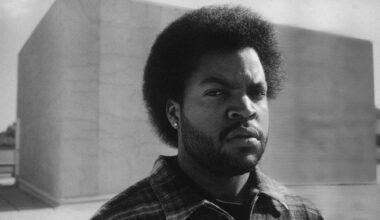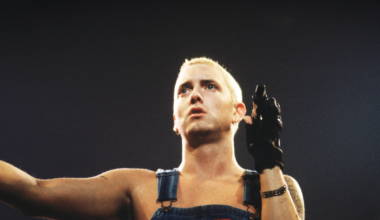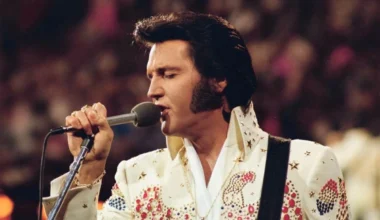Pink Floyd was on an upward trajectory throughout most of the 1970s. After losing Syd Barrett to his mind throughout the making of their first two albums, their following projects explored the trauma they experienced with letting him go, exploring the elements of what makes the average person lose their mind. Although Dark Side of the Moon was their crowning achievement for most fans, Roger Waters had bigger plans for their next few releases.
Throughout Wish You Were Here and Animals, Waters made music intended to deliberately go against the music industry, like the cautionary tale in ‘Welcome to the Machine’ and ‘Have A Cigar’. As the band’s star kept rising, Waters became more desensitised to the rock and roll lifestyle, thinking that the fans were turning up to his shows to cause trouble rather than enjoy the music.
Coming up with the idea of making a clear divide between band and audience, Waters came up with The Wall, taking different pieces of his life and turning them into a bold rock opera centred around the character Pink. Although the album bears the name Pink Floyd, Waters contributed most of the material, with David Gilmour only offering up a handful of musical ideas to go with the arrangements Waters had in his head.
Although Gilmour remained proud of what he had accomplished at the time, he did admit that he thought that the musical side of the album could have been better, recalling later on in Pink Floyd Archive, “I still think some of the music is incredibly naff, but The Wall is conceptually brilliant. At the time, I thought it was Roger listing all the things that can turn a person into an isolated human being. I came to see it as one of the luckiest people in the world issuing a catalogue of abuse and bile against people who’d never done anything to him”.
Despite working extensively on the final product, Gilmour would eventually become dissatisfied during the tour for the record. Being one of the first significant spectacles in rock and roll, the band turned their average concert into its dramatic theatre piece, making the titular wall onstage before bringing everything down at the concert’s end.
Since Waters had to focus on most of the singing as the LP’s protagonist, the guitarist often found himself operating as the de facto stage director, ensuring all of the lights went off without a hitch so that Waters could focus more on his singing. Although the band were a massive success on the road and even managed to get a hit out of their rock opera with ‘Another Brick in the Wall (Part 2)’, the next few years would spell disaster for Gilmour and Waters’s creative partnership.
After working on The Final Cut, Waters would leave Pink Floyd for a solo career, after which Gilmour took complete control of the band. Although the band would cut two more albums throughout their time together, it wasn’t long before Gilmour decided to turn it in, eventually making The Endless River in 2014 before permanently retiring the band name.
Though The Wall may have been one of their most creative endeavours, it did come up at the expense of their greatest songwriting assets. Regardless of how much they put into the final product, the band would never be the same once the recording of Waters’s vision wrapped up.







